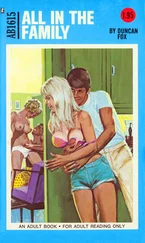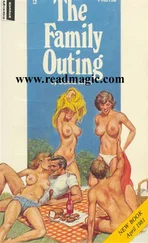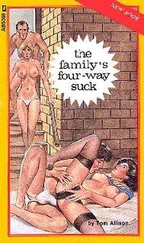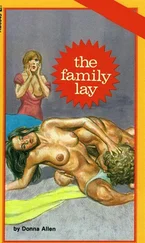“You’re the opposite of me. I just love people!” George beams. “I want to talk to anyone and everyone, apart from my mother. Dad and Fleur don’t count. They’re just replicas of her. When I told them all about me and Ellen being engaged, they all said the exact same thing.”
He wants me to ask, but I can’t face it. I nod and try to look supportive—as if I’d have said something better.
“So . . . Justine, are you sure about this?” George asks. He’s weighing my phone in the palm of his hand as if it’s a bar of gold. “It’s so generous of you. Do I deserve it?” He frowns. “What if I read all your personal emails? I promise I won’t!”
“You’re welcome to. There’s nothing secret in there.” I invented a different email address for my correspondence with Ops, and those messages don’t automatically upload to my phone. Even if George searched the internet history, he wouldn’t be able to get into the account. It’s password-protected. “If you dig deep enough and get to last year, you’ll find me ranting and swearing like a madwoman about injustices in the world of TV drama, but then you know all about that already: the Ben Lourenco business.”
He looks worried. “How do you know I know about it? Did Ellen tell you?”
Wait. My turn first. “George, who’s Lisette Ingrey?”
His eyes widen. His Adam’s apple jerks up and down in his throat.
“Did your mother tell you that was her name, before she changed it? Did she tell you your name was once Urban Ingrey?”
“What do you mean did she tell me? Are you saying it’s not true?”
I shouldn’t have brought it up. Terrible timing. Whatever George believes about her never getting home before seven, Anne might be on her way back. I may not have long.
“It’s true, Justine—everything Ellen’s told you.” George looks upset. “I hope you don’t believe in . . . bad blood or anything like that. I think that’s a silly superstition, with no scientific basis,” he blurts out defensively. “Just because my aunt was who she was, that doesn’t tell you anything about me. I could no sooner murder anybody than rollerskate to Mars!”
“George, I . . . really, I don’t think anything bad about you. Please don’t worry about that.”
He hates his mother. He’s clever enough to see exactly how destructive she is. But he believes what she’s told him about her past history—believes it unquestioningly.
It can’t be my job to tell him his mother’s as much of a liar as she is a tyrant. In an ideal world, that task would fall to Stephen Donbavand—useless waste of space that he is.
“Thank you, Justine—for your faith in me. I promise you, I won’t let you down.”
“We can’t have this conversation now, George,” I say. I need to search your house. “Take the phone. Hide it.”
“You are truly the loveliest of people.”
My eyes fill with tears. It’s pathetic, no doubt, but I can’t help it.
“Justine? When you’ve finished in the house, before you leave, make sure you don’t block up the window or anything. Leave it open or I won’t be able to get back in. I’m going to pretend I was upstairs all day and didn’t hear it smash.”
I nod. George stuffs the phone into his jeans pocket, bows to me as if I’m the Queen and he’s my humble servant, and tears off down the hill to Lionel’s boat.
I climb into his house through the window. The first thing I spot in the predominantly brown and beige living room is a sideboard with open doors. There are board games and jigsaw puzzles inside it, and more piled high on top. In a corner, there’s a TV but no DVD player. Nondescript landscape paintings on the walls, two sofas that have an aged, crushed look about them. Two fat bookcases full of all kinds of books: novels, dictionaries, Assyriology tomes, books about economics. Why so many dictionaries? I wonder. There are more than ten, and none for foreign languages. Did Anne keep buying new editions in the hope that the meaning of “truth” might change—that suddenly, in 2010 or 2011, the word might be redefined in her favor?
Truth: whatever shit you feel like inventing, to make everyone who knows you wonder if they’re going mad. Former meaning: that which is in accordance with fact or reality.
There’s a dreary gray and black galley kitchen at the back of the house, and a downstairs loo that ought to have been left as an under-stairs cupboard. Apart from that, the whole ground floor is the living room. I go upstairs and find what I expected: three bedrooms—a double and two singles—and a bathroom.
This isn’t right. If I didn’t know better, I would assume a normal family lived in this house. Fleur’s bedroom is spotlessly tidy. All over the walls, there are posters of what must be some kind of girl band: The Saturdays. George’s room is mainly tidy, but not immaculate like his sister’s. There are a few heaps of clothes on the floor. He has a bookcase in his room that’s stuffed full of novels: Dickens, Jane Austen, Charlotte Brontë, Robert Graves, Tolstoy.
Interesting. It looks as if Anne has no objection to her son reading novels, as long as he doesn’t have access to the internet. It’s other real people that she fears. She’s not worried about the influence of Jane Eyre or Oliver Twist .
Clever people can be the stupidest of all.
Anne and Stephen’s bedroom is the messiest room in the house. The bed is unmade. There’s a large pile of clean, ironed laundry balanced on one corner and spilling over onto the floor, where there are nearly as many crumpled, dirty clothes and discarded bath towels. An ironing board is pushed against the wall under the window. There’s a dressing table in a corner with two laptops on it, as well as makeup, deodorant, perfume, balled-up socks.
The Donbavands need a bigger house. Incarceration doesn’t have to be this cramped.
The phone begins to ring, startling me. I stare at the old-fashioned handset on the bedside table nearest to the window. It’s covered in dust. I don’t want to touch it. It might stink of liar breath. My stomach heaves at the thought.
It could be Anne, calling to speak to George. When he doesn’t answer, won’t she panic and drive straight home? I need to get out of here as soon as I can. There’s nothing to stop me leaving now. I’ve done what I wanted to do: invaded Anne’s home the way she invaded mine.
Randomly, I pull open the dressing table drawers and find nothing interesting. One contains between ten and twenty plug adaptors. Furious, I slam it shut, thinking about Anne jetting around the world, sharing her ideas with other academics while her son’s not allowed to make one friend without getting removed from school.
In the next drawer down there’s a heap of hair accessories on top of a brown envelope file, which I pull out and open. My breath catches in my throat.
At the top of the first typed page, in a large font, are the letters “A.I.,” underlined. Allisande Ingrey. Beneath the heading, there’s a numbered list of what look like gravestone inscriptions. It goes on for pages and pages, starting with the short and basic—“In Loving Memory of,” “In Remembrance of”—and moving on to longer, more elaborate suggestions: “A tiny flower, lent not given / to bud on earth and bloom in heaven.” There’s a blue-ink checkmark next to number forty-six on the list: “Our family chain is broken. / Nothing seems the same. / But as God calls us one by one / The links shall join again.”
That’s a reference to Perrine Ingrey having been murdered, no doubt.
The phone has stopped ringing. In the ensuing silence, I tell myself what I know is true, though I wish I could pretend otherwise: Anne Donbavand has chosen the inscription for my gravestone.
Читать дальше











